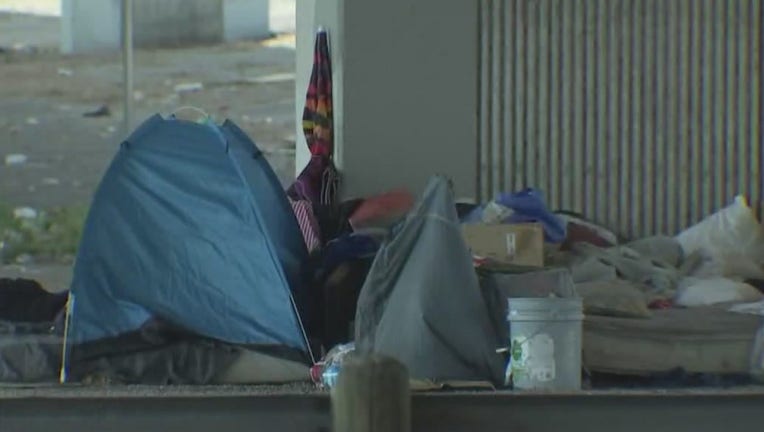DACC's Intensive Care Management helps Austin homeless, reduces repeat citations by 99%

AUSTIN, Texas - The Downtown Austin Community Court is reporting a dramatic decrease in repeated offenses among the homeless community served by their Intensive Case Management program.
An analysis of citations issued to 59 homeless individuals have shown that the number of repeat citations has decreased by 99% after their time with the DACC's Intensive Case Management (ICM) program. Data shows that the group of 59 individuals received 1,556 citations before participating in the DACC service and only seven citations after receiving help.
Peter Valdez is the Director of the Downtown Austin Community Court and says the court's main goal is to assist the Austin homeless community, "The mission of DACC first and foremost is to serve individuals experiencing homelessness with a person-centered and comprehensive approach. We’ve worked to create a safe environment where individuals know they’ll be treated with respect and dignity, and have access to the help they need.”
RELATED: People living at state homeless camp 'losing faith'
The program helps rehabilitate the homeless by finding different means to deal with their citations rather than just fines, which oftentimes cannot be paid. DACC provides help by "utilizing a client-centered and housing-focused approach to Intensive Case Management services." According to DACC, most of the offenses are behavioral and include such citations as public intoxication and disorderly conduct.
The ICM program works with the homeless to help curve these behavioral citations by providing services like addiction counseling, peer support, housing, and mental health care. "A lot of people we deal with are individuals experiencing homelessness, so we don’t want to create any additional barriers for them while they’re trying to address the challenges that they encounter while they’re on the street. We want to help them to successfully transition to housing,” said Robert Kingham, the Operations Manager at DACC.
RELATED: Homeless man's barbershop transformation goes viral
By helping the homeless, DACC also takes the stress off of other public systems that have to respond to the citations, such as public jails and emergency response. “Our services have helped prevent our clients from continuing to cycle through the criminal justice system and other publicly funded systems. In the coming years, we will help many more individuals in their path to housing and achieving long-term stability," said Valdez.
The IMC is currently supporting 122 individuals and has helped house another 166 homeless individuals between January 2016 and November 2019.
"Individuals may enter ICM services through the judicial process, engagement with the Homeless Outreach Street Team (HOST), or by requesting services voluntarily," DACC states.

